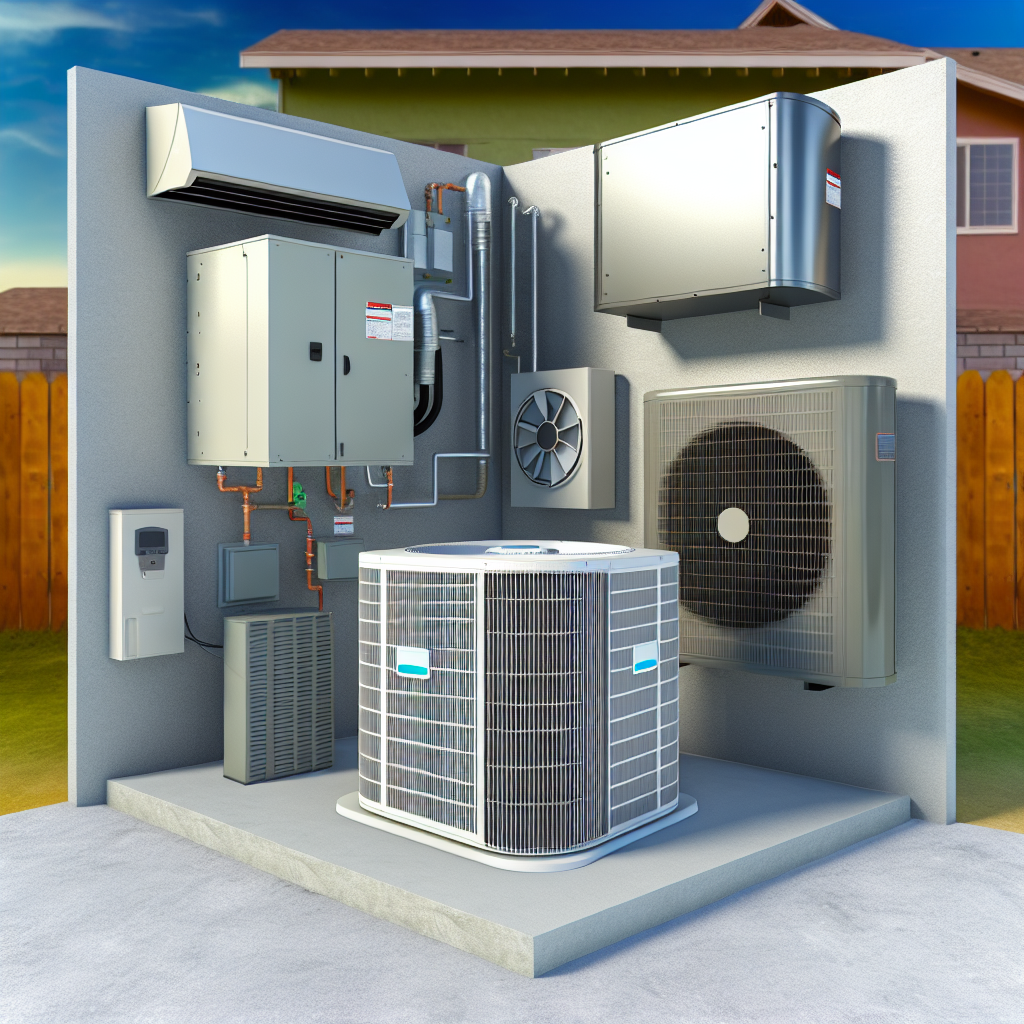Published: Jun 08, 2025

When it comes to heating, ventilation, and air conditioning (HVAC) systems, choosing the right one for your home is crucial for comfort and energy efficiency. With various types of HVAC systems available in the market, it can be overwhelming to decide which one suits your needs best. In this guide, we will explore the different types of HVAC systems to help you make an informed decision for your home.
Split system HVAC is one of the most common types found in residential properties. This system consists of two main units: an indoor unit that includes the evaporator coil and an outdoor unit housing the compressor and condenser coil. Split systems are known for their energy efficiency and ability to provide both heating and cooling.
Packaged HVAC systems contain all the components, including the compressor, condenser, and evaporator, within a single unit. These systems are typically installed outside the home or on the roof. Packaged systems are ideal for homes with limited indoor space as they do not require an indoor unit.
Ductless mini-split systems are gaining popularity for their versatility and zoning capabilities. These systems consist of an outdoor unit connected to one or more indoor air-handling units through a conduit. Ductless mini-splits offer flexibility in heating and cooling specific zones in the home.
Geothermal heat pump systems utilize the constant temperature of the earth to provide heating, cooling, and hot water for homes. These systems are highly energy-efficient and environmentally friendly, making them a sustainable choice for homeowners looking to reduce their carbon footprint.
Hybrid heat pump systems combine the efficiency of an electric heat pump with a gas furnace for optimal performance in varying weather conditions. These systems automatically switch between electric and gas heating based on outdoor temperatures to maximize energy savings.
By understanding the different types of HVAC systems available, you can select the option that aligns best with your home's heating and cooling needs. Consider factors such as energy efficiency, installation requirements, and maintenance costs when choosing an HVAC system tailored to your specific requirements.
Make an informed decision based on your home's layout, size, and insulation levels to ensure optimal comfort and energy savings in the long run. Consulting with a professional HVAC technician can also provide valuable insights and recommendations on the most suitable system for your home.
**

Our expert technicians are ready to assist you 24/7!
Contact Us Today!Read our latest articles for helpful information about heating, cooling, and air quality.
Recognizing signs such as age, rising energy bills, frequent repairs, uneven heating/cooling, and strange noises/odors...
Read MoreRegular HVAC maintenance is crucial for keeping your system running smoothly, avoiding costly repairs, and improving ene...
Read MoreUpgrading to energy-efficient HVAC systems through measures like programmable thermostats, duct sealing, high-efficienc...
Read MoreImplementing strategies such as regular cleaning, humidity control, ventilation, air purification, and allergen prevent...
Read More